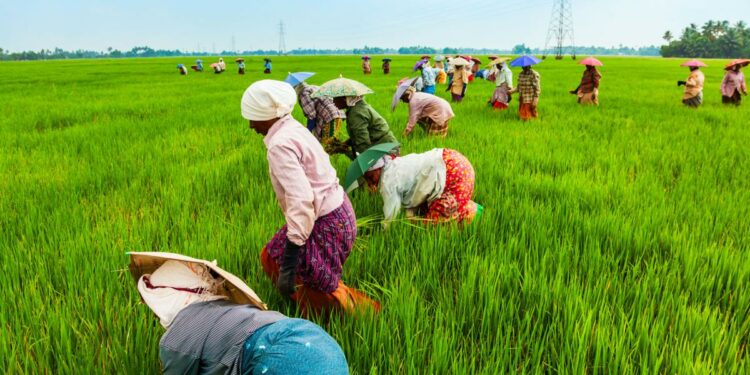Peasant Farmers Urge Govt to Redirect Half of ‘Big Push’ Infrastructure Funds into Agriculture
Ahead of the presentation of the 2025 Mid-Year Budget Review, peasant farmers are calling on government to reallocate at least 50% of the Big Push infrastructure funds into the agricultural sector.
According to the Peasant Farmers Association of Ghana (PFAG), the move would significantly enhance the implementation of the government’s Feed Ghana Programme—one of the key pillars under the broader 24-Hour Economy policy framework.
The Feed Ghana Programme seeks to boost food production, supply raw materials for agro-processing, and create employment, particularly among the country’s growing youth population. As part of its design, the initiative aims to establish farmer service centres across the country to provide mechanisation support, inputs, financing, market access, and training.
Speaking at a civil society pre-budget forum in Accra, Executive Director of PFAG, Bismark Nortey, argued that a substantial reallocation of infrastructure development funds toward agriculture would reflect the government’s stated policy priorities.
“If you listen to the President and his appointees, you’ll realise that agriculture is the anchor of this government. In the 24-Hour Economy Programme, there are eight objectives—about seven of them focus on agriculture. The Feed Ghana Programme itself has several planned initiatives,” Mr Nortey stated.
He continued: “So if the government’s flagship economic programme is centred on agriculture, and we aim to reduce our food import bill, improve food security, and ensure quality local food production, there’s every justification to channel at least 50% of Big Push funds into the agriculture sector.”
The PFAG believes that prioritising agriculture in budgetary allocations could serve as a catalyst for economic transformation, job creation, and improved livelihoods.
Meanwhile, concerns are also being raised by market traders over rising fuel costs and the limited investment in mechanised farming. The traders argue that these challenges are affecting the affordability and availability of food across the country.
A plantain vendor, speaking to Citi Business News, lamented the impact of fuel levies on transport costs. “I wish to express concern over the rising cost of fuel. While the recent price drop was welcome—especially for those transporting farm goods—the new GHC1 levy per litre has cancelled out the benefits. It’s increased overall fuel costs, straining livelihoods and pushing up transport expenses,” she said.
A yam trader, Opanyin Amissah, also appealed for government support: “If the government can support us with agricultural equipment to ease our work, it would help reduce the prices of our produce and improve our earnings.”
With the mid-year budget expected to provide updates on the performance of key economic programmes, stakeholders in the agricultural value chain are hopeful that government will demonstrate greater fiscal commitment to the sector, which remains the backbone of Ghana’s economy.








